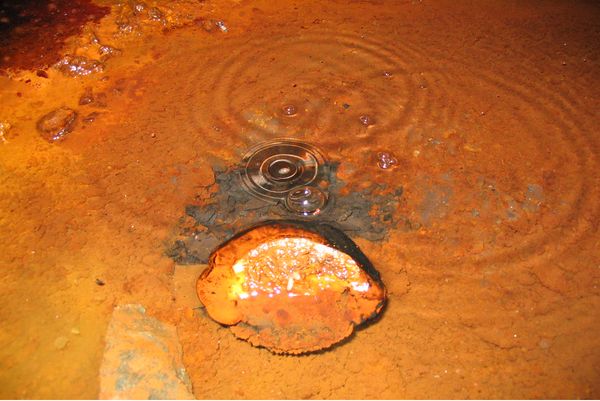It seems our planet Earth has kept many things in its treasure trove untouched as long as billions of years. We have seen a 2.1 billion-year old meteorite found in Morocco’s Sahara Desert in 2011. And lately, a group of scientists has found minimum 1.5 billion-year old water trapped in rock in Canada. The discoverers believe the water might contain microbes that evolved independently from the surface world.
A team of British and Canadian scientists had been investigating water samples from other mines. Greg Holland, a geochemist at Lancaster University in England, and his colleagues saw some fluid had been coming from a mine in Timmins, Ontario. They became interested to know for just how long that fluid had been trapped in the rock. So, they approached some miners and asked them to drill boreholes. As soon as the gold miners did, water started to come from those holes and scientists collected samples of water. The scientists looked at the decay of radioactive atoms in the collected water sample and calculated that the water was between 1.5 and 2.67 billion-year old.
According to Holland, about 2.7 billion years ago, Timmins looked a bit different. Beneath prehistoric seas, tectonic plates had spread, and magma had welled up to form new rock. As the rock had matured under heat and pressure, water was trapped inside tiny cracks. He said, “the fluids that we see now are actually preservation of ancient oceans. There’s a lot of hydrogen in these samples.” He also mentioned that it was the hydrogen that “could provide the energy for life to survive in isolation for 2 billion years.” He also added that the collected sample water from those rock was the oldest cache of water ever found on Earth and the water was sealed in the rock before humans evolved, before Pterosaurs flew and before multicellular life.
Now the scientists are testing the water samples for evidence of microbes. They hope, within a year they would come up with results. The research has been published in Nature.
Source: NPR
Thanks To: National Geographic
[ttjad keyword=”camcorders”]





Thats remarkable. Would like to see updates.